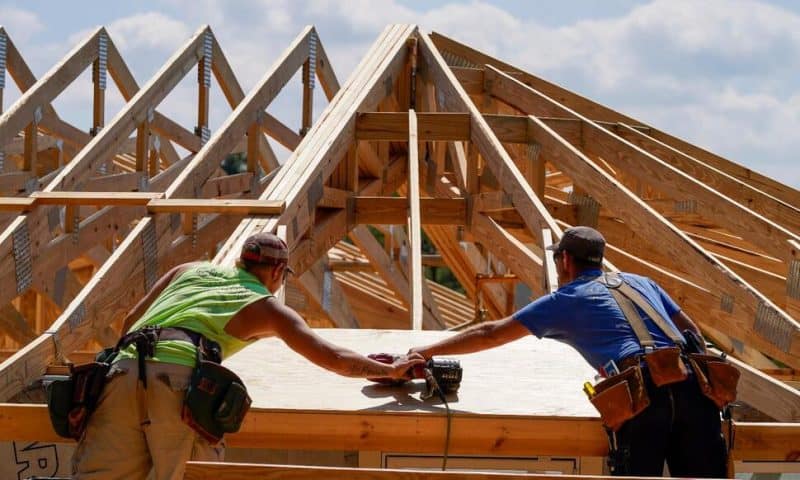The average rate on a 30-year mortgage moved back above 7% this week, a setback for home shoppers at a time when the U.S. housing market is already slowing under the strain of elevated home loan borrowing costs and rising prices
LOS ANGELES — The average rate on a 30-year mortgage moved back above 7% this week, a setback for home shoppers at a time when the U.S. housing market is already slowing under the strain of elevated home loan borrowing costs and rising prices.
The rate rose to 7.03% from 6.94% last week, mortgage buyer Freddie Mac said Thursday. A year ago, the rate averaged 6.79%.
This is the first increase after a three-week pullback. Higher mortgage rates can add hundreds of dollars a month in costs for borrowers, limiting homebuyers’ purchasing options.
Borrowing costs on 15-year fixed-rate mortgages, popular with homeowners refinancing their home loans, also rose this week, pushing up the average rate to 6.36% from 6.24% last week. A year ago, it averaged 6.18%, Freddie Mac said.
Mortgage rates are influenced by several factors, including how the bond market reacts to the Federal Reserve’s interest rate policy and the moves in the 10-year Treasury yield, which lenders use as a guide to pricing home loans.
Yields climbed earlier this week on worries about tepid demand for Treasury bonds following several U.S. government auctions and a surprising report showing confidence among U.S. consumers is strengthening. Economists had been expecting it to show a drop in confidence.
The Fed has been holding the federal funds rate at the highest level in more than two decades in hopes of grinding down on the economy enough to get high inflation fully under control. The central bank has maintained it doesn’t plan to cut interest rates until it has greater confidence that price increases are slowing sustainably to its 2% target.
“This reality, as well as economic signals that have moved sideways over the last few weeks, have resulted in mortgage rates drifting higher as markets continue to dial back expectations of interest rate cuts,” said Sam Khater, Freddie Mac’s chief economist.
After climbing to a 23-year high of 7.79% in October, the average rate on a 30-year mortgage stayed below 7% this year until April. Even with the declines earlier this month, the rate remains well above where it was just two years ago at 5.09%.
The overall uptick in rates have been an unwelcome development for home shoppers in the midst of the spring homebuying season, traditionally the busiest time of the year for home sales. On average, more than one-third of all homes sold in a given year are purchased between March and June.
Sales of previously occupied U.S. homes fell in March and April as home shoppers contended with rising mortgage rates and prices. Sales of new homes also slowed in April, falling 7.7% from a year earlier, as borrowing costs slowed.
New data on contract signings for U.S. homes, a bellwether for future home sales, point to potentially further slowing of home sales.
The National Association of Realtor’s pending home sales index fell 7.7% in April from the previous month, the trade group said Thursday. April’s drop in pending home sales is the first since January.
“The impact of escalating interest rates throughout April dampened homebuying, even with more inventory in the market,” said Lawrence Yun, the NAR’s chief economist. “But the Federal Reserve’s anticipated rate cut later this year should lead to better conditions, with improved affordability and more supply.”
A lag of a month or two usually exists between when a contract is signed and when the home sale is finalized. That suggests a possible pullback in sales of previously occupied U.S. homes for May.
As rates have ticked higher, so have the monthly payments home shoppers need to take on when applying for a mortgage.
The national median monthly payment listed on home loan applications was $2,256 in April, a 2.5% increase from the previous month and 6.8% higher than what it was a year earlier, according to the Mortgage Bankers Association.

